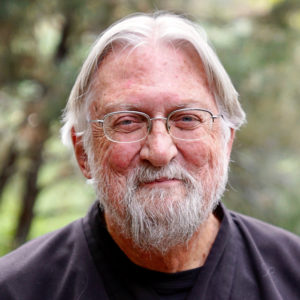April 8, 2022
In this episode, Wendy speaks with psychologist, contemplative researcher, and Zen Buddhist teacher, Al Kaszniak. Al has been in the contemplative science space since the earliest days, and his work has shed light on how meditation impacts our thoughts, emotions, and sense of self. This conversation covers many topics, including:

- his parallel interests in Buddhism and neuropsychology;
- research on meditation, emotion, and attention;
- how our view of self impacts what seems relevant to us;
- cognitive effort and emotion regulation;
- how his own experience of self has shifted through practice;
- attention and early emotion/affective tone;
- shifting out of the conceptual mind;
- the relationship of attention and emotion;
- how decades of practice have changed his daily life;
- free will vs. free won’t (meditation as inhibition);
- increasing access to contemplative ideas and practices;
- mind as process, interaction, and context—and what that means for science;
- and the value of interdisciplinary dialogue and the “in-between” spaces.
Al Kaszniak is a clinical and developmental psychologist, contemplative researcher, author, and Zen Buddhist teacher. He is presently Emeritus Professor of Psychology, Faculty Advisory Board Member of the Center for Compassion Studies, and Pedagogy Fellow at the University of Arizona. His research has focused on the neuropsychology of Alzheimer’s disease and other age-related neurological disorders, cognition and emotion in healthy aging, consciousness, memory self-monitoring, emotion, the psychophysiology of long-term and short-term meditation, and contemplative pedagogy. He is the co-author or editor of seven books, including the three-volume Toward a Science of Consciousness (MIT Press), and Emotions, Qualia, and Consciousness (World Scientific). His research, published in over 170 journal articles and scholarly book chapters, has been supported by grants from the U.S. National Institute on Aging, National Institute of Mental Health, and National Science Foundation, as well as several private foundations and institutes.
He has served on the editorial boards of several scientific journals, has been an advisor to the U.S. National Institutes of Health, Department of Veterans Affairs and other governmental agencies, and has served on the Boards of Directors of several voluntary health organizations, professional organizations, and institutes. He is a former President of the Section on Clinical Geropsychology, Division of Clinical Psychology of the American Psychological Association (APA), and was a fellow of the APA and the Association for Psychological Science (APS). He has also served as Chief Academic Officer and interim CEO for the Mind & Life Institute. In addition to his academic and research administrative roles, he received dharma transmission as a teacher (Sensei) of Zen Buddhism, and serves as Chairman of the Board of Directors of Upaya Zen Center and Institute, Santa Fe, NM.
Resources
Upaya Sangha of Tucson
University of Arizona faculty page
- Al’s dharma talks
- University of Arizona Center for Consciousness Studies
- Davidson, RJ & Kaszniak A (2015). Conceptual and methodological issues in research on mindfulness and contemplative practice. American Psychologist, 70.
- Nielsen, L, & Kaszniak, AW (2006). Awareness of subtle emotional feelings: A comparison of long-term meditators and non-meditators. Emotion, 6, 392-405.
View or download a transcript of this episode

The Academy for the Love of Learning
